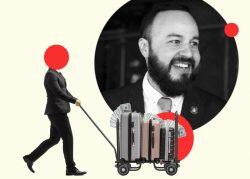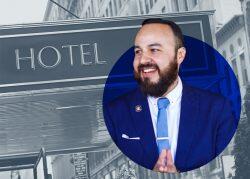New York City hotels have long been haunted by steep property taxes, but yet another increase has made the expense difficult to sustain for the industry.
Property taxes mounted to 30 percent of revenue in 2020, a hulking increase from 9.4 percent in 2019, according to a report from the Hotel Association of New York City. The group detailed the average property tax expense’s growth in the last decade from roughly 7 percent of total revenue in 2011.
In 2011, property tax hit $154,171, across 80 assets, with total revenue at $2.2 million. By 2019, property tax was $129,464, across 52 assets, of $1.4 million in total revenue.
Vijay Dandapani, the trade group’s president and CEO, said most — if not all — hotels are challenging their property tax assessments. He estimates most will go to the tax commission as the Department of Finance is likely not going to concede.
New York remains at the high end among other major markets, with property taxes at 8.2 percent in Chicago, 4.4 percent in Washington, D.C., 4.1 percent in Los Angeles, 4 percent in San Francisco and 3.3 percent in Miami.
Read more


The association previously said almost 200 hotels in the city were closed between May 2020 and June 2021, with nearly half of them still shut as of mid-November. The report noted how the industry’s lows threaten the city’s overall economy: In a typical year, hotels raise $3.2 billion a year in city tax revenue, and add $22 billion annually to the economy.
The group recently came to a head with the city after Mayor Bill de Blasio in October signed a bill requiring shuttered hotels to either reopen or pay severance to their out-of-work staff. HANYC filed a lawsuit asking the court to void the law and seek an injunction.
In a statement, Dandapani cited the same conclusion detailed in a CBRE study published in April. The firm forecast the industry won’t recover to its pre-pandemic business until 2025, with revenue per available room reaching 2019 levels by 2024, occupancy rates hitting 74 percent in 2022 and 86 percent in 2025.
In anticipation of the industry’s lengthy road ahead, Dandapani called for action from city officials.
“The City must suspend the penalties on late payments for property taxes, which accrue at an exorbitant rate,” Dandapani said. The City should be doing everything to help hotels and the tourism industry get back on its feet.”
